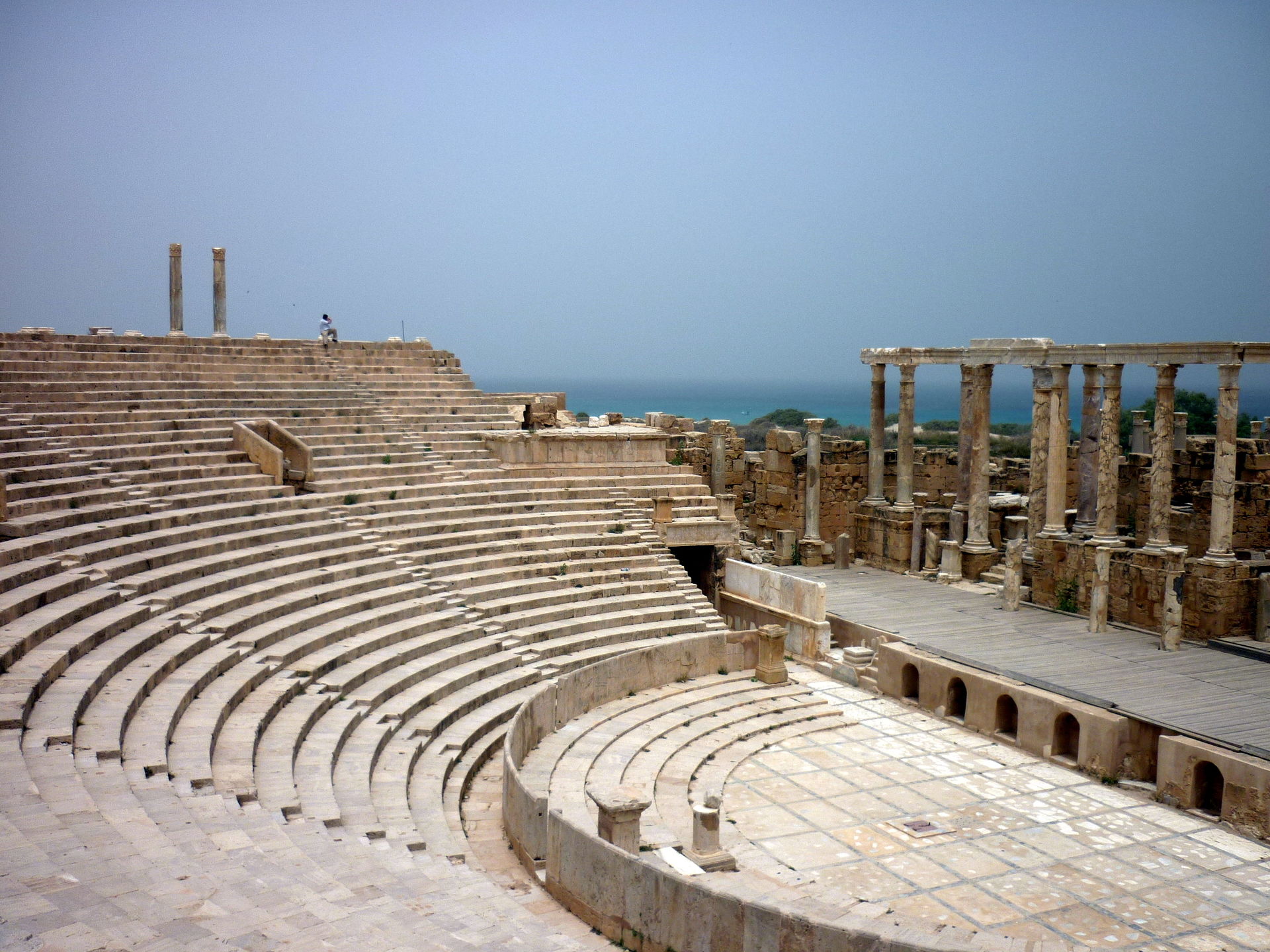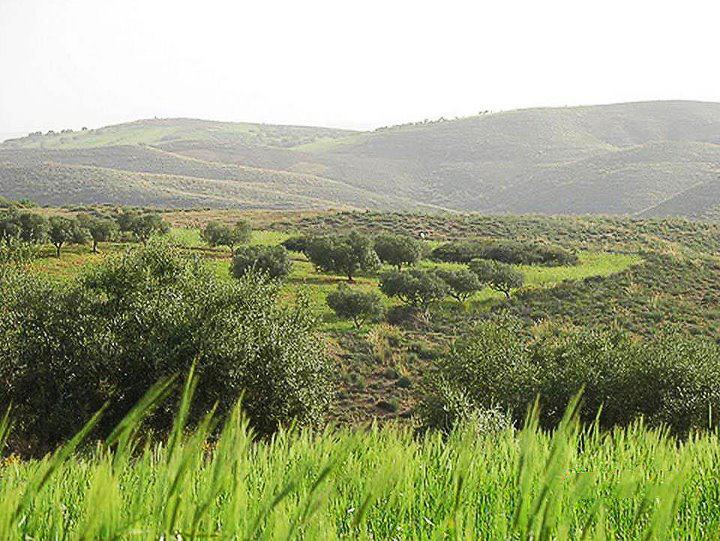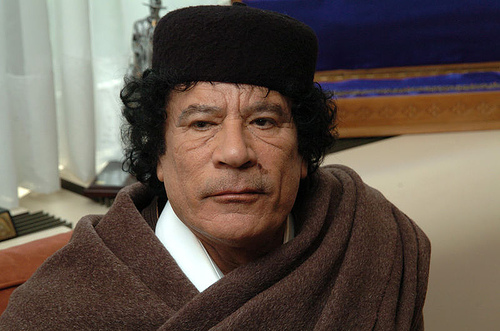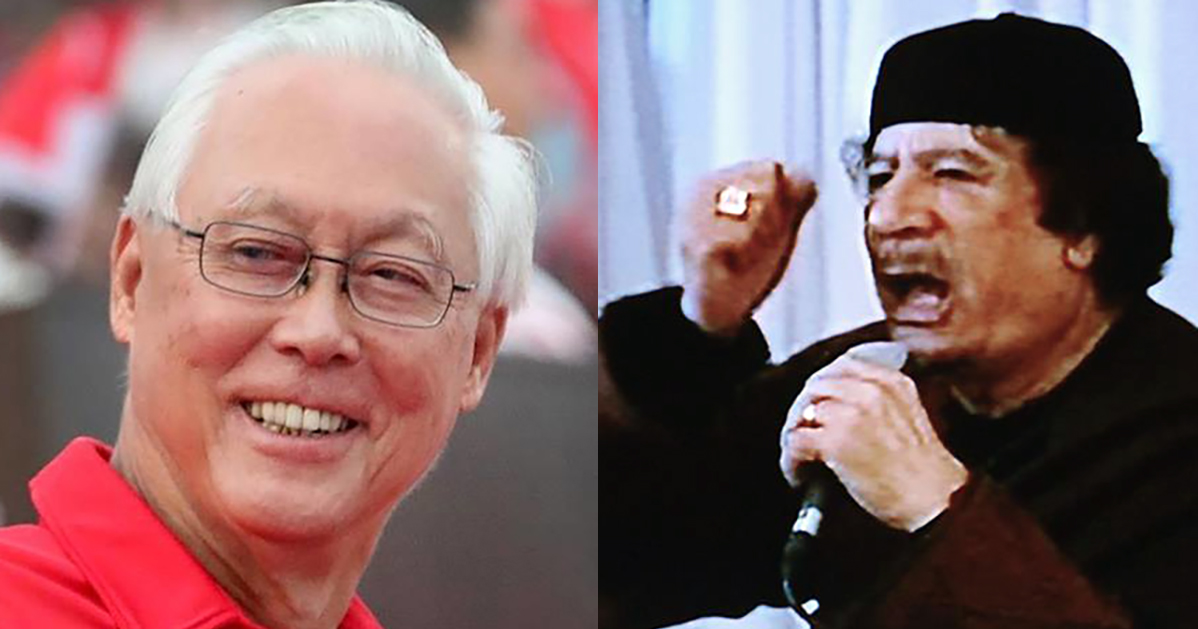These days, news involving Libya is often grim, as a result of its ongoing civil war.
The country has fallen into a state of disarray, following the death of the country's leader Muammar Gaddafi in October 2011.
Military clashes between multiple factions over its capital, the presence of terrorist groups, and the trafficking of migrants have dominated headlines.
The country was not always in this state though.
Libya once looked to Singapore as a model of development
Some 11 years ago, on May 8, 2008, then Senior Minister Goh Chok Tong met Muammar Gaddafi, the Brotherly Leader and Guide of the Revolution of Libya in the capital, Tripoli, for the first time.
Goh was accompanied by his wife, then Minister for National Development Mah Bow Tan, then Senior Minister of State for Foreign Affairs Zainul Abidin Rasheed, then Senior Minister of State for Trade and Industry S Iswaran, along with senior government officials and a business delegation.
Invited to Libya to share Singapore's experience
Goh revealed that he had been invited by the Libyan government on the grounds that Singapore's experience was relevant to Libya, according to a press conference held after his meeting with Gaddafi.
Goh elaborated that this was due to a similarity in terms of population size, and in terms of Singapore being ahead in the experience of moving into a knowledge-based economy, according to an interview with Singapore media on the same day.
Goh said the Libyan government was interested in diversifying the country's economy so that it was less dependent on oil.
More importantly, the government was also hoping to transform the Libyan society from a consumption society into a productive society, Goh stated.
Libya was keen to tap into Singapore's experience of restructuring the economy to achieve our level of development, particularly with regard to human resource development.
Tourism sector identified by Singapore as an area where it could help
For Singapore's part, Goh said tourism had been identified by his delegation as one of the key sectors he felt Singapore could help Libya with.
Goh highlighted that Libya had potential tourist sites, such as the ruins of Leptis Magna and the Green Mountain (Jebel Akhdar), which could be made tourist attractions.
 Source: Wikipedia
Source: Wikipedia
 Source: Wikipedia
Source: Wikipedia
Singapore's expertise would come in the form of helping Libya build up the infrastructure, transportation, logistics, hotels, and most importantly, develop people who can work in the hospitality sector.
Amazed by Libya's infrastructure despite years of sanctions
Goh further said at the press conference that he was amazed by Libya's infrastructure, based on what he had seen in Tripoli.
He added that he had expected the country to be doing much worse because of the sanctions it had been subjected to.
Libya at that time had been subjected to 11 years of sanctions from 1992 to 2003, when it accepted responsibility for its role in the Lockerbie bombing in 1988, in which Pan Am Flight 103 from London to New York was blown up over Lockerbie, Scotland, killing 270 people.
While Goh acknowledged that the sanctions still had some sort of effect on the country, the impression he had of Tripoli made him confident that Libya could definitely achieve more when the sanctions were gone, particularly in the area of education.
Goh said:
"What you have may be adequate, but I believe without sanctions, Libya could have done very much more and in terms of education, you don’t see. Because of sanctions, Libyans were not so free to travel overseas for the best education. Now, without sanctions, I think many Libyans would have gone to America where you can get very good tertiary education. So, these are the effects of sanctions which I do not see, but for other services in Tripoli, I was surprised that the impact was not as bad as I imagined it to be."
Recommended LKY's From Third World to First to the Libyans
At the press conference, Goh subsequently recommended to the Libyans the late Lee Kuan Yew's memoir, From Third World to First.
His recommendation came as part of a response to a question by a Libyan official, who asked Goh to share his experience in national development.
Goh said one of the keys to development was having good leadership with a clear vision and the ability to gain the support of the people.
As per Goh:
"You can’t force policies down the throat of the people. You’ve got to persuade them, which means you must have the ability to communicate, to explain, to eventually persuade people to come along with you on a varied path may be in short-term... policies."
He also said it was important to heavily invest in human resources, such that people were ready for both the present and future economy.
Goh said some of these topics had come up in his discussion with Gaddafi.
A good impression of Gaddafi
When asked by the Singapore media for his personal impression of Gaddafi, Goh replied:
"Well, he came across to me as an introspective person, thinking about the problems of the country, reflective and certainly an astute person."
 Source: Open Democracy via Flickr
Source: Open Democracy via Flickr
As for his discussion with Gaddafi, Goh said that it had been an affirmation that a welfare state and subsidies will lead Singapore to ruin.
Goh added that Gaddafi himself had told him that the welfare subsidies provided by the state were not working in keeping the people happy and that they wanted more.
Getting Libyans to pay for business services then was even harder to achieve.
Goh said Libya served as an important lesson for Singapore in this regard.
The government should never change its policy and go the way of giving more subsidies.
Goh said his discussion with Gaddafi was a good and "illuminating" one.
Returned to Libya again in 2009, visited by Gaddafi's son in 2010
The positive impression Goh had of Libya and Gaddfi was reciprocated.
Goh would return to Libya from Aug. 31 to Sept. 2, 2009 to participate in the 40th anniversary of the country's Great Al Fateh Revolution (i.e. Libya's National Day).
In the wake of his initial visit, a Libya-Singapore Joint Working Group was established, along with the signing of two agreements in April 2009 -- an Investment Guarantee Agreement and the Avoidance of Double Taxation Convention.
And in September 2010, the second son of Gaddafi, Saif al-Islam al-Gaddafi, arrived in Singapore to visit Goh, with Libya having expressed interest in setting up a Trade Office here.
 Source: National Archives of Singapore
Source: National Archives of Singapore
2011: Gaddafi is shot by rebels
These burgeoning ties would come to an abrupt halt in 2011 with the death of Gaddafi.
Beginning in February 2011, protests by the Libyans erupted against Gaddafi's rule, as part of the wider Arab Spring sweeping the region, in the wake of a human rights activist's arrest.
Gaddafi responded with force against the protesters, resulting in an armed conflict between factions loyal to Gaddafi and opposition groups, which united to form the National Transition Council (NTC).
For his actions against the protesters, Gaddafi and his family were subjected to sanctions by the U.N. Security Council, along with the referral of his crackdown on rebels to the International Criminal Court.
Meanwhile, the NTC was given recognition by the international community and backed up a military coalition made up of France, Britain, Canada and Italy.
By August 2011, the NTC announced that it had taken control of Tripoli and on Oct. 20, 2011, Gaddafi was killed in the northern Libyan city of Sirte, the last stronghold of his government, as NTC fighters took control of it.
He had been in power for 42 years.
Top image collage from Wikipedia and MParader Facebook
If you like what you read, follow us on Facebook, Instagram, Twitter and Telegram to get the latest updates.
